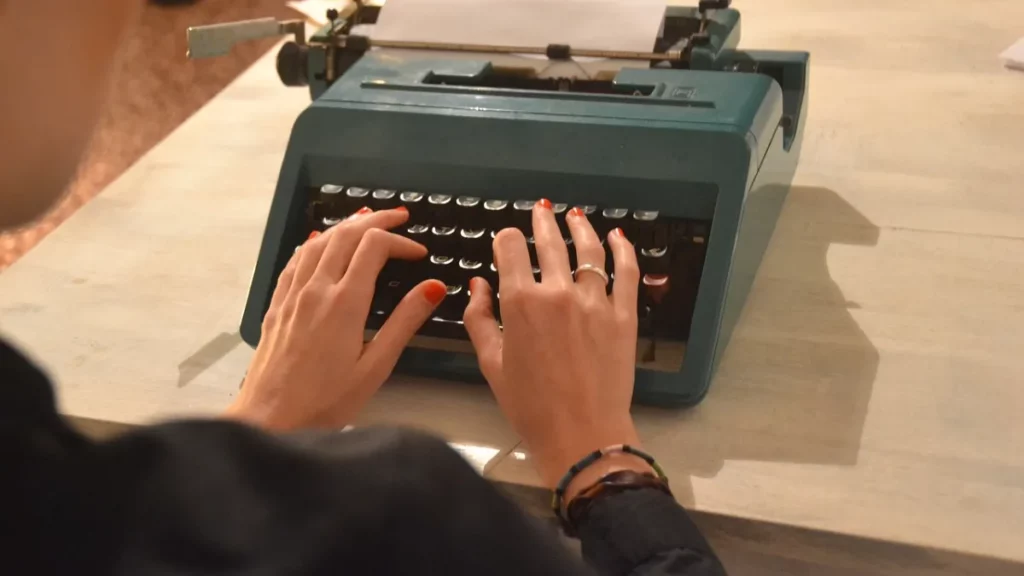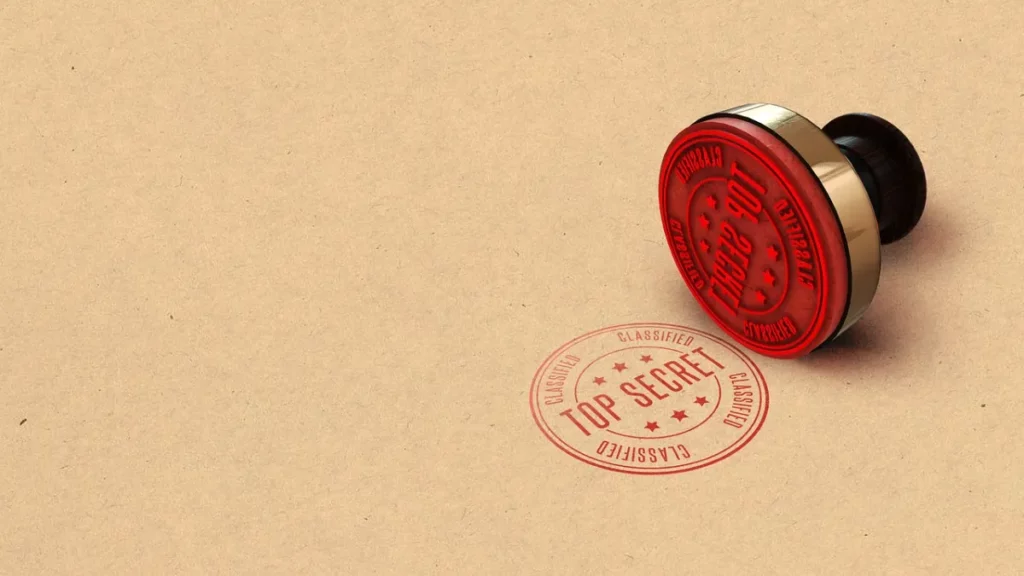
This site is reader-supported. We may earn a small commission if you make a purchase from one of our partners.
Have you ever wondered if a cease and desist letter is a public record? It’s a question many people ask when they’re considering taking this first step in a legal process.
A cease and desist letter is like a stop sign; it’s a written warning to inform someone that they should halt what they’re doing—be it copying your invention, badmouthing your business, or using your personal photo without permission. It’s understandable to be concerned about who else might see this document. Is it just between you and the other party, or is it something anyone can access?
In this article, we’ll explore the ins and outs of cease and desist letters, demystifying the legal jargon and discussing whether these documents become part of the public record. So, if you’re feeling anxious or just plain curious about the privacy of these legal notices, read on for clear and helpful information that will guide you through the process.
Understanding Cease and Desist Letters

When you dip your toes into the legal waters, it’s important to understand the tools at your disposal. One such tool is the cease and desist letter, an essential part of the legal toolkit for resolving disputes without heading straight into a courtroom showdown.
What Is a Cease and Desist Letter?
Imagine you’re playing a game where someone isn’t following the rules, and you need a way to tell them to stop—that’s where a cease and desist letter comes in. In the legal game, it’s a formal request (or demand letter) to halt unlawful activities.
The letter acts as a warning shot, informing the recipient that their actions are infringing on your rights and that legal action may follow if they don’t stop. It’s like a formal “no trespassing” sign, putting the recipient on notice.
Different Reasons You Might Send a Cease and Desist Letter
There’s a variety of scenarios that might call for you to send one of these letters. Perhaps someone is making false statements about you or your business, causing harm to your reputation. This is known as defamation, and a cease and desist letter can be the first step in getting those statements retracted and stopping further damage.
Maybe you’ve created something unique—a gadget, a logo, or even a special method of doing something—and someone else is using it without your permission. This could be an infringement of your intellectual property rights, and again, a cease and desist letter can be the starting point in protecting those rights.
Even personal disputes can sometimes lead to the use of a cease and desist letter. If someone is harassing you, leaking private information, or using your photo without consent, sending them such a letter might be necessary to put an end to their intrusive behavior.
In each of these cases, the letter serves a specific purpose: to inform the offending party that they must stop their actions or face potential legal consequences. It’s a preliminary move that can often resolve issues quickly and efficiently, without the need to go to court.
Are Cease and Desist Letters Public Record?

When you send or receive a cease and desist letter, it’s natural to wonder who else might get to see it. Before we dive into whether these letters are out in the open for anyone to discover, let’s clear up some confusion around the term “public record.”
What Does “Public Record” Mean?
Public records are documents or pieces of information that are not considered confidential. This can include records like birth certificates, court documents, and, in some cases, business transactions.
Essentially, these are files that can be accessed by the general public, meaning you or anyone else could request to view them. They serve the purpose of maintaining transparency in governmental and legal proceedings, ensuring that there is a traceable record of actions and decisions.
How Public Records Work
Most public records are managed and maintained by government agencies. They are stored and are retrievable by certain processes. For example, if you wanted to see a public court document, you would typically go through the clerk’s office at your local courthouse.
Public records can serve all kinds of purposes, from historical research to legal documentation, and are an integral part of making sure our society operates with a level of openness.
Cease and Desist Letters Are Not Public Record
Now, the big question: are cease and desist letters public record? In most cases, the answer is no. Cease and desist letters are private correspondences between two parties and are not filed with any government agency. They’re often the first step taken in a dispute before any official legal claims are made in court. As such, they do not typically fall under the category of public records.
That said, if a cease and desist letter escalates into a lawsuit, any documents submitted as part of that lawsuit, including potentially the cease and desist letter itself, could become part of the court records. These records are generally public, although there may be exceptions where parts of the records are sealed or otherwise restricted from public view.
In short, while cease and desist letters themselves are not public records, any subsequent legal proceedings may make them part of the accessible court files, unless specific privacy protections are in place.
How to Get a Cease and Desist Letter

If you’re looking to address a violation of your rights or put an end to unwelcome actions, a cease and desist letter is a primary tool to consider. This document serves as a firm request for someone to stop an activity that is infringing upon your legal rights. Obtaining such a letter can be done in two main ways: drafting one yourself or enlisting the expertise of a lawyer.
Writing One Yourself
Taking the initiative to write a cease and desist letter on your own is certainly possible, and it’s a path many choose, particularly when resources are limited. For a solid foundation, you might want to use established services like LawDepot, which offers legal document templates to get you started. These templates are designed to guide you through the necessary components of a cease and desist letter, including your contact information, detailed descriptions of the infringement, and explicit instructions on the actions you are demanding to cease.
While a template can’t replace personalized legal advice, it can ensure that you cover the essential elements of the letter in a professional and legally sound manner. With LawDepot, you can tailor the template to the specifics of your situation, ensuring that the cease and desist letter is appropriately targeted for your unique case.
Hiring a Lawyer
For more complex scenarios or if you prefer not to use a DIY approach, hiring a lawyer or law firm is advisable. Legal professionals bring to the table a depth of knowledge about the law’s subtleties that only comes with experience.
A lawyer can draft a letter that not only lays out the necessary information but also includes the legal gravitas that can encourage the recipient to take the letter seriously. Additionally, should the letter be disregarded or challenged, your lawyer can provide strategic advice on the best course of action to take next. Though more expensive, the investment in professional legal services might prove to be cost-effective in the long run if it results in a more expedient and positive outcome.
No matter which path you choose—whether it’s leveraging the resources of LawDepot to draft your own letter or consulting a legal expert—the objective remains to prompt the recipient into discontinuing the infringement. The effectiveness of your cease and desist letter, self-written or lawyer-drafted, hinges on its clarity, legality, and the authority with which it communicates your demand.
Privacy Concerns with Cease and Desist Letters

When you’re involved in a situation that requires sending a cease and desist letter, privacy isn’t just a preference—it’s a necessity. This isn’t just about keeping things under wraps; it’s about protecting your personal and business interests from unnecessary exposure and potential escalation.
Why Privacy Can Be Important
Privacy in legal matters, especially concerning cease and desist letters, is paramount. Imagine you’ve worked hard to build a business or create a product, only to have someone else infringe upon your rights. You decide to send a cease and desist letter to the offender.
Here’s where privacy comes in: If these letters were public record, your actions might alert competitors to your business strategies or legal stance, or perhaps broadcast an issue before you’re ready to go public with it. Moreover, making such a letter public could inadvertently harm the reputation of both parties involved before a resolution is reached.
Keeping the correspondence private helps maintain control over the situation, allowing for a more measured approach to dispute resolution.
Protecting Your Information When Dealing with Legal Matters
The protection of your personal data and sensitive information should always be at the forefront when dealing with legal documents. Cease and desist letters typically contain confidential information, which if made public, could have various unintended consequences.
To safeguard your interests, it’s crucial to understand the channels through which these letters are sent and how they are stored. Ensuring that the communication remains between the involved parties is a critical step in any legal process.
Employing registered mail, secure email, or working with a legal professional can provide layers of privacy to keep sensitive details contained. Remember, once information is public, it’s almost impossible to retract, so it’s wise to take precautionary steps from the outset.
Making Smart Choices About Your Legal Correspondence

When dealing with potential legal issues, the steps you take early on can significantly influence the outcome. This is especially true when it comes to drafting and sending legal documents like cease and desist letters. But how do you know when it’s the right move to send one?
When to Use Cease and Desist Letters
Cease and desist letters are a first line of defense. They are used to formally ask someone to stop an action that you believe infringes on your rights or is illegal.
For instance, if someone is using your trademark without permission, making false statements about you or your business, or sharing your copyrighted content without consent, a cease and desist letter might be appropriate.
It’s a powerful tool because it puts the recipient on notice that you are aware of their actions and that you’re serious about protecting your rights. It can also serve as evidence that you tried to resolve the issue amicably should you need to pursue further legal action.
The Importance of Getting It Right
Getting a cease and desist letter right is crucial. The letter should be clear, concise, and free of any ambiguity. It needs to outline the specific complaint, reference any relevant laws or rights, and provide a clear demand for a specific action, like stopping the use of a trademark or removing defamatory content.
This is not just about making a point; it’s about laying the groundwork for potential legal proceedings, should they become necessary. A poorly drafted letter can be ineffective, may escalate the conflict, or even have legal repercussions for you. This is why we recommend services like Law Depot.
Your goal should be to resolve the situation efficiently and effectively, while also maintaining a professional tone throughout. After all, a cease and desist letter is not just a warning—it’s a reflection of your commitment to safeguarding your rights.
Conclusion
In conclusion, understanding the privacy of cease and desist letters can provide a sense of reassurance in what may be a stressful situation. These letters are generally not considered public records, meaning they’re not automatically accessible by the general public. They serve as a private warning to resolve issues before escalating to legal action.
However, if the matter proceeds to court, the contents may become part of the public domain through court filings. It’s important to remember that while the initial step of sending a cease and desist letter is a private affair, any legal actions that follow could change that status. So, when considering sending such a letter, always be mindful of the potential for public exposure and perhaps consult with a legal professional to protect your interests. Armed with this knowledge, you can confidently manage cease and desist letters and navigate the complexities of legal communication.
Do you need to send a cease and desist letter? We recommend using Law Depot. Their online tool makes it quick and easy to get a powerful letter that will get the results you need.

Wes Talisman is a freelance journalist who helps answer common legal questions for everyday people. He’s never won a Pulitzer Prize, but he does write a stellar Cease and Desist letter.